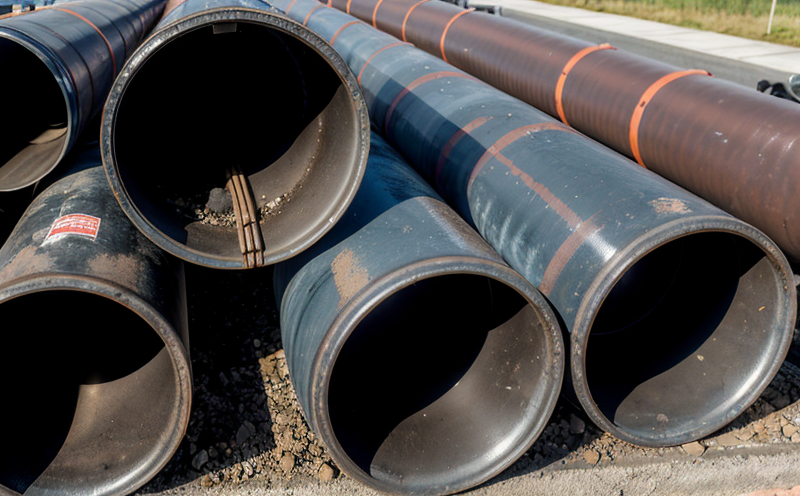BS EN ISO 13477 Slow Crack Growth Testing of Plastic Pipes
The BS EN ISO 13477 standard specifies a procedure for determining the resistance to slow crack growth (SCG) in plastic pipes. SCG is a critical property that assesses the material’s ability to resist damage from environmental stress cracking, which can be caused by exposure to specific chemicals or temperature changes.
Understanding this property is essential when selecting pipe materials for applications where they are likely to be exposed to chemical environments, such as in the petroleum, chemical processing, and water distribution industries. This testing method ensures that pipes will perform reliably under real-world conditions, thereby enhancing safety and longevity of installations.
The test involves subjecting a notched specimen to a constant load over time while maintaining a controlled environmental condition (such as temperature). The goal is to observe the initiation and propagation of cracks at low stress levels. Crack growth behavior can provide insights into the material's long-term durability, especially under cyclic loading.
Specimen preparation is crucial for accurate testing results. Specimens are typically cut from the pipe or tube using precise methods to ensure they have a defined notch geometry that meets the standards specified in BS EN ISO 13477. The specimens must then be conditioned before testing, which involves soaking them in the specified chemical environment (if applicable) and temperature.
The test apparatus used includes a slow crack growth tester capable of applying constant stress to the specimen while monitoring crack propagation through visual inspection or automated image analysis. The tester can also log data such as load, displacement, and time, which are critical for evaluating the SCG behavior of plastic pipes.
The standard defines acceptance criteria based on both the rate of crack growth and the final length of cracks observed after a specified testing period. Compliance with these criteria ensures that the pipe material meets the required durability standards for its intended application.
| Material Type | Dimensions | Notch Geometry | Conditioning Environment |
|---|---|---|---|
| PVC-U, PVC-M, PVC-C, or other plastic pipes | 150 mm length × 3 mm thickness | ISO 8269-1: Notched specimens with a V-notch | Room temperature and relative humidity of 50% ± 5%, or as specified by the material manufacturer |
The results from this test can influence several aspects of product development and quality assurance. For instance, it helps R&D teams optimize pipe formulations to improve resistance to SCG. In compliance management, these tests ensure that materials are up to the required standards before being used in critical applications.
Scope and Methodology
- The test scope includes determining the slow crack growth behavior of plastic pipes under specified environmental conditions.
- It is applicable to various types of plastic pipes, including PVC-U, PVC-M, PVC-C, CPVC, PE-RT, and others as defined by international standards.
The methodology involves conditioning the specimens in a controlled environment (such as temperature and humidity), applying a constant stress using a specific apparatus, and monitoring crack initiation and propagation over time. The key steps are:
- Prepare test specimens with standard dimensions.
- Condition the specimens to ensure they are at the correct environmental conditions.
- Apply a constant load using an appropriate testing machine.
- Monitor crack initiation and growth visually or through automated systems.
- Evaluate compliance with acceptance criteria based on crack length and propagation rate.
Customer Impact and Satisfaction
- Satisfies regulatory requirements for pipe materials used in chemical processing, water distribution, and other industries.
- Ensures customer satisfaction by delivering high-quality products that meet the specified durability standards.
Competitive Advantage and Market Impact
- Achieves compliance with international standards, enhancing market credibility.
- Provides a competitive edge by ensuring superior material performance in challenging environments.





